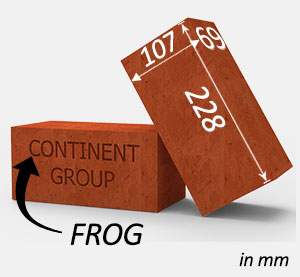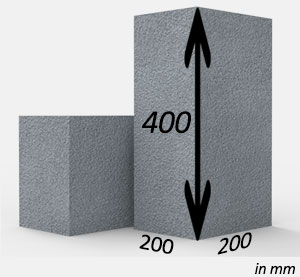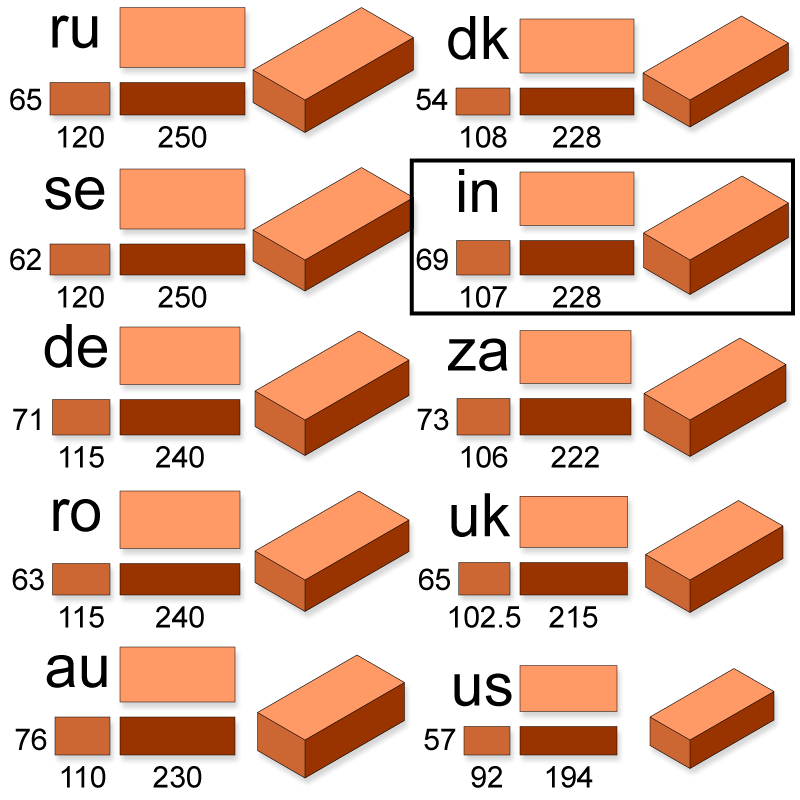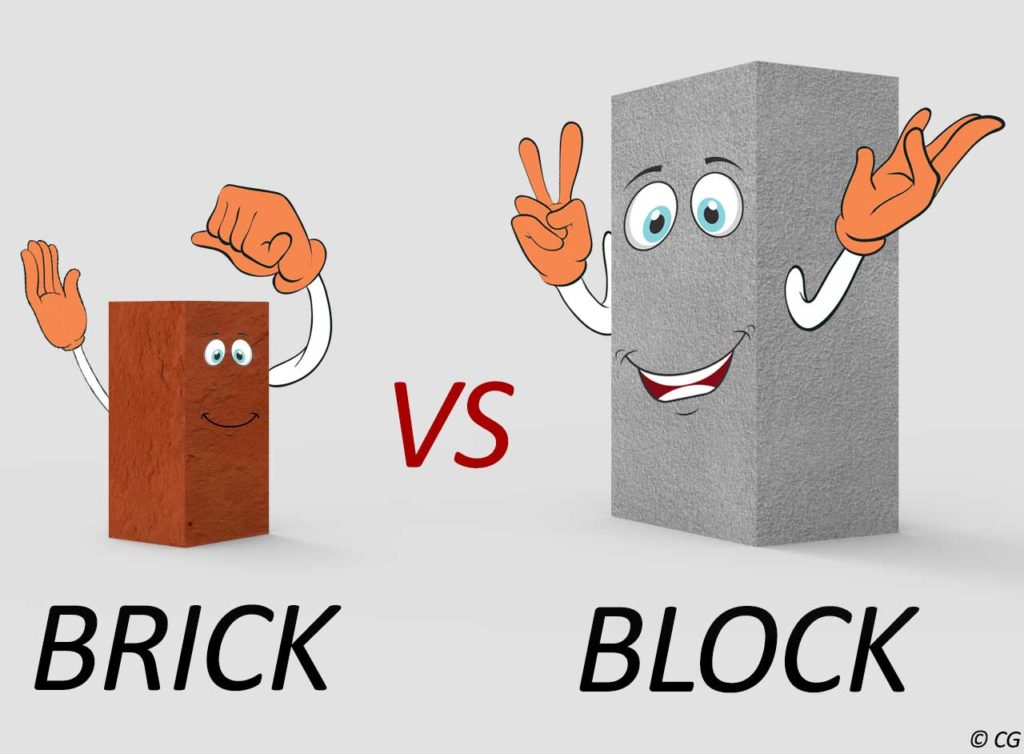Brick vs Concrete Block Introduction
Brick:
A brick is building material used to make walls, pavements and other elements in masonry construction.
Block:
A concrete masonry unit (CMU) is a standard size rectangular block used in building construction
IS.2185.1.2005 3.10 Solid Block‘— A block which has solid material not less than 75 percent of the total volume of the block calculated from the overall dimensions.
Non-Modular Sizes For Brick (IS)
6.1.2 The following non-modular sizes of the
bricks may also be used.
Length mm:
230
230
Width mm:
110
110
Height mm:
70
30
Nominal Sizes For Block (IS)
4.2.1 (PG:02) The nominal dimensions of concrete block shall
be as follows:
Length : 400, 500 or 600 mm
Height : 200 or 100 mm
Width : 50, 75, 100, 150, 200, 250 or 300 mm.
Sizes


Sizes of Brick According to location:

Applications of Brick:
- For construction of walls it may be External or Internal.
- For Sump tank.
- For Ornamental works such as Arch and Tombs.
- For Temporary sheds (Depends on Class of Brick).
- For Pavements.
Applications of Concrete Block:
- Applications more or less similar to that of bricks.
- Better Quality compare to bricks.
Advantages of Brick:
- Cheaper.
- Good Compression Strength 3.5 N/mm2.
- Low maintenance.
- Fire Resistant.
- Recyclable.
- Can be Made in different sizes and shapes.
Advantages of Concrete Block:
- Cheaper compare bricks (Overall Cost).
- Faster Construction.
- Clean Finish.
- Easily Available.
- Eco friendly.
- Better Quality compared to regular Bricks.
The Big Question? Which one to Choose? Brick or Concrete Block?
The answer is simple.
It all depends on Availability, Cost of Construction and Time.
FAQ:
1.Cost is not an issue for me?
Still time is also matters in construction concrete blocks saves both time and money.
2. I have lot of time and money is brick good for me?
Sure, Why not if brick is available go for it.
3. Strength wise which one to choose bricks or concrete block?
Both can be used for external walls. Again it depends on Building contractor or owner to choose.
Heat conductivity of cement is higher and bricks made using cement will have higher temperature inside the building.
Useful links
http://www.iitk.ac.in/ce/test/IS-codes/is.1077.1992.pdf
https://apcoconcreteblocks.com/
https://www.materialtree.com/bengaluru/blog/bricks-faqs/
https://www.quora.com/What-is-the-need-importance-of-frog-in-bricks
https://theconstructor.org/practical-guide/indian-standard-codes-brick-work/6010/
http://www.iitk.ac.in/ce/test/IS-codes/is.2185.1.2005.pdf
https://theconstructor.org/building/difference-red-bricks-solid-concrete-blocks/37090/
https://www.aboutcivil.org/bricks-advantages-disadvantages-uses.html
https://civiltoday.com/civil-engineering-materials/brick/137-compressive-strength-of-brick


I wanted to add paved walkways around my backyard garden, and I was wondering if brick would be good to use for the hardscaping. I appreciate you informing us that bricks are well-suited for pavements since they’re cheaper, require low maintenance, and can be made in a variety of sizes and shapes. I’ll be sure to take note of this while I look for a contractor to hire for my brick masonry soon.
Even thought brick are denser than concrete blocks, I Know they are brittle,reducing their tensile strength by far. On the other hand, cement concrete blocks have more tensile strength. I often use cement because it makes the blocks compact and hence getting rid of the problem during and after transportation . I appreciated it when you outlined the different sizes of bricks based on location and the ideal applications of each. Your article is simple to understand and on point.